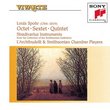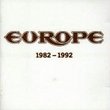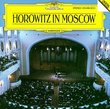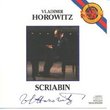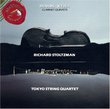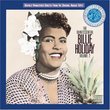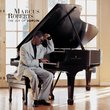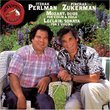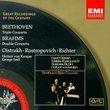| All Artists: Vladimir Horowitz Title: Horowitz: The Legendary 1968 TV Concert (The Complete Masterworks Recordings, Vol. 4) Members Wishing: 0 Total Copies: 0 Label: Sony Original Release Date: 1/1/1968 Re-Release Date: 6/14/1994 Album Type: Original recording remastered Genres: Dance & Electronic, Classical Styles: Forms & Genres, Ballads, Sonatas, Historical Periods, Baroque (c.1600-1750), Modern, 20th, & 21st Century Number of Discs: 1 SwapaCD Credits: 1 UPCs: 074645346526, 007464534652 |
Search - Vladimir Horowitz :: Horowitz: The Legendary 1968 TV Concert (The Complete Masterworks Recordings, Vol. 4)
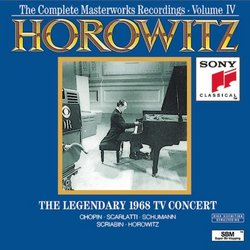 | Vladimir Horowitz Horowitz: The Legendary 1968 TV Concert (The Complete Masterworks Recordings, Vol. 4) Genres: Dance & Electronic, Classical |
Larger Image |
CD DetailsSimilar CDs
Similarly Requested CDs |
CD ReviewsHorowitz on Television Hank Drake | Cleveland, OH United States | 02/27/2003 (5 out of 5 stars) "Volume Four of Sony's Horowitz reissue contains the audio portion of the pianist's first of many appearances on television. Horowitz had been approached numerous times since the 1940s by network executives looking to televise the pianist. But it was not until 1968, the 40th anniversary of his American debut, that Horowitz approved the idea.Knowing that he would be performing for more people in one night than he could possibly reach after years of touring must have put the pianist under pressure. But Horowitz rose to the occasion and this is some of the tightest, most disciplined playing of his later career, helped by a program which suited his unique gifts perfectly.The two contrasting Scarlatti Sonatas are played with Horowitz's usual uncanny control of pianissimo, fleet fingerwork, and perfect pedaling. However, L. 23 is a perhaps bit "precious" compared to his sprightly 1986 Moscow performance. Horowitz made four (approved) recordings of the Chopin's Ballade in G-Minor. Truth be told, he was never entirely successful in the work, finding difficulty in balancing the episodic and structural elements. This version, along with the epic sounding performance from his 1965 return concert, is the most successful technically and musically. Less successful is the Nocturne in F-Minor. Horowitz's playing here is too large dynamically, overly focused on detail at the expense of the whole, and the piece emerges as a collection of details. The F-sharp minor Polonaise is given a performance which is downright diabolical, even nerve-wracking. Yet Horowitz holds the work under a rhythmic control that even Arthur Rubinstein never achieved. It is no exaggeration to say that this may be the greatest F-sharp Minor Polonaise ever recorded, certainly it is one of Horowitz's greatest achievements in Chopin.It's interesting to compare Horowitz this version of Schumann's Arabeske with Horowitz's studio recording. The 1962 version features swifter tempos, more delicate colors, a more structural approach, which contrasts with the comparatively laid-back, yet somehow bolder performance given here. Both approaches are equally valid. Träumerai is performed with Horowitz's usual attention to detail.Scriabin's ubiquitous Etude in D-Sharp Minor, a work open to many interpretations, is given a truly demonic performance here which threatens to run off the rails during its climax. Yet Horowitz manages somehow to hold the work together in this compelling recreation.Horowitz was constantly revising his variations of the Gypsy Song from Carmen. Over the years this version seems to have become the most popular. Horowitz's revisions are less repetitive than in earlier versions, more inventive pianistically, and the overall approach is more relaxed.This is one of three Horowitz videos which remain commercially unavailable (Horowitz's disastrous 1983 Tokyo concert has wisely been kept from distribution, the other is the 1978 White House recital, which CAN be obtained from the Jimmy Carter Library). Portions of the 1968 concert have been shown on various documentaries, and they offer a tantalizing glimpse of Horowitz in his late prime. Sony should aquire the video rights to this recital and release it on DVD immediately. No complaints about the sound."
|


